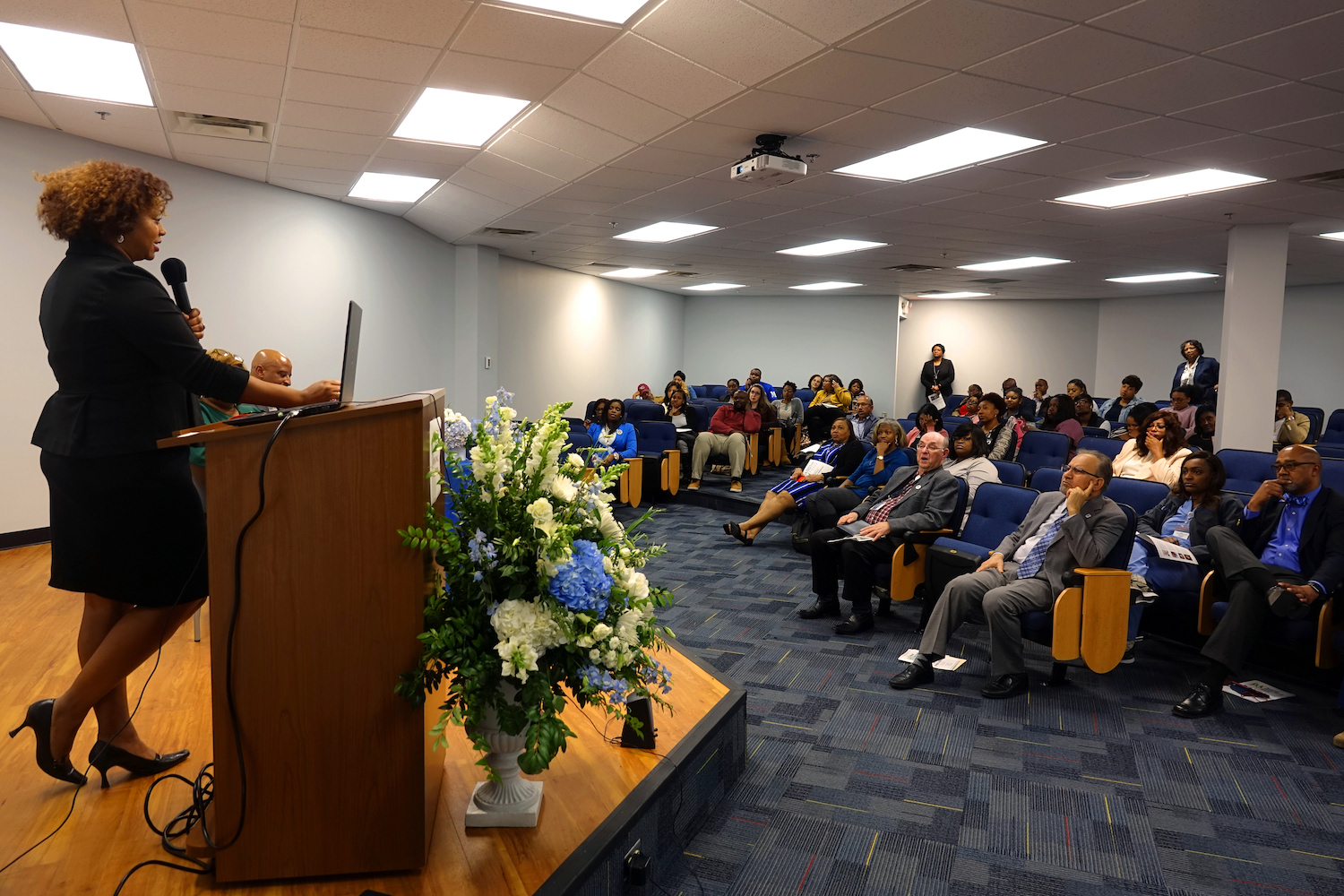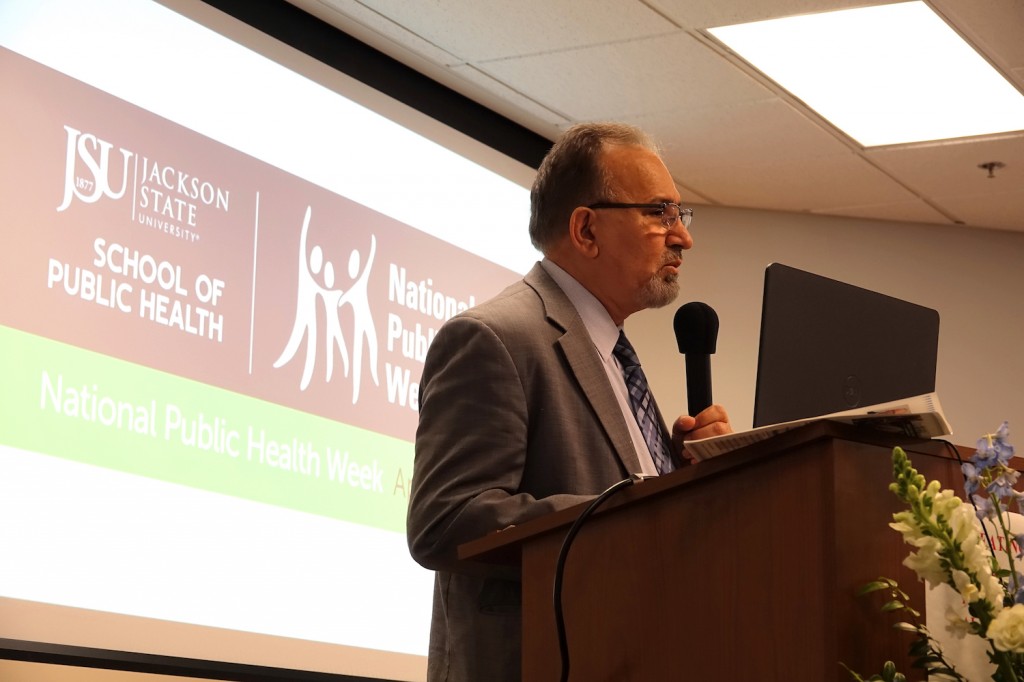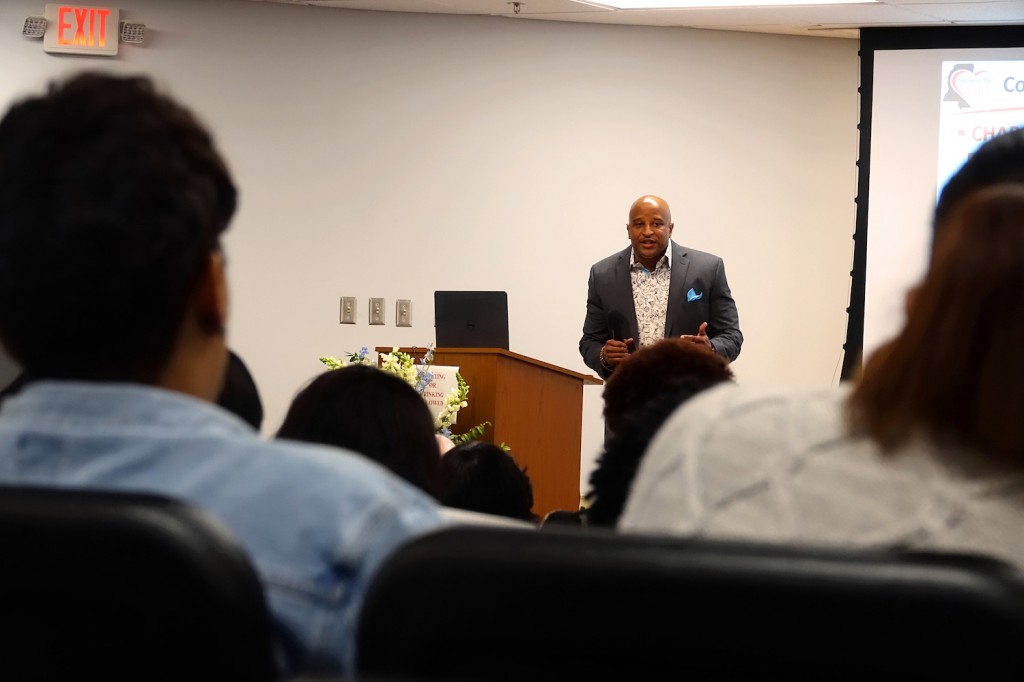
![]()
[hr]During a recent Public Health Week event, experts discussed community initiatives in which barbers act as health screeners and the Jackson Medical Mall (JMM) serves as a safe spot for individuals affected or infected by AIDS to “speak your truth.”
Lori Greer, deputy director and CFO of the Jackson Medical Mall Foundation, describes the facility’s Care for Me Services as a prevention grant program that started in 2014. There are several ongoing programs inside the mall:
- Test To Know: conducts targeted rapid HIV testing via a mobile medical unit and stationary sites within JMM
- 5Voices@6: fosters leadership and empowerment through communication and mobilization that are intertwined with art and culture to reduce HIV among young men of color
- The Spot: encourages wellness, empowerment, leadership and life conversations among all young men
Its “Speak Your Truth” program provides a platform for individuals facing various challenges and dilemmas. One includes a woman whose husband infected her with HIV after he had been incarcerated.

Others involved a young man whose first sexual encounter was perpetrated by people in the church; a young man who was molested by his babysitter; a transgender man whose parents couldn’t adapt to his lifestyle, so he relocated to Atlanta and was infected by a married.
Greer said, “You have all these people with all these experiences who come and talk about their past. You let people know about what’s going on in your life so that they are not ashamed anymore or feel bad about what happened to them. Speak Your Truth is one of our most powerful programs. A lot of times other people are able to identify with their stories and can give their testimonies to other people.”
Meanwhile, Dr. Victor Sutton, director of the Office of Preventive Health and Health Equity for the Mississippi State Department of Health is also helping to change people’s health outcomes.
He said, “We’re newly involved with the Jackson Heart Study, and we have a Community Engagement Center. We will be engaging targeted communities in Hinds, Rankin and Madison counties on providing health messages by working with faith-based communities, barbers and mayors to bring about change.”
In addition, Sutton said, “We want to help people better control their high-blood pressure and eliminate other risk factors.”
He especially touts the barbershop program, calling it critical because “when it comes to our black men it’s a hard population to reach. In the African-America community, barbershops are a safe place to talk about politics, religion and music. Nothing is taboo, including sexual health.”

Sutton said barbers are trained to become lay health advocates. They conduct health screenings, and they can refer at-risk men with high-blood pressure, for example, to a health care provider if they don’t have one. “We have community health workers who can help follow up and support that person. It’s being going on in the Delta for about eight years, and now we’re about to launch in urban areas such as Jackson. We’re trying to empower people to take control of their health.”
Another public health advocate is Erin Shirley Orey. She volunteers with the Drs. Aaron and Ollye Shirley Foundation, which is named in honor of her late parents. Aaron Shirley founded the Jackson Medical Mall.
Erin Shirley Orey, a JSU master’s of public health student, said the foundation wants to help minimize health and education disparities in Mississippi.
“My father served the underserved, and my mother focused on assuring that people have access to quality health education. We want to create a blueprint of treating the whole person holistically by providing mental and physical health care services and educational opportunities. Those can be tutorial services, healthcare services or counseling and therapy session.” She also said efforts are under way to create community gardens so people can have access to quality fruits and vegetables.
Erin Shirley Orey said her parents inspired change. “My siblings and I learned so much from them. Our dinner conversations were centered on healthcare and educational issues in Mississippi. I’m just thankful that we are able to continue their legacy through the foundation.”







